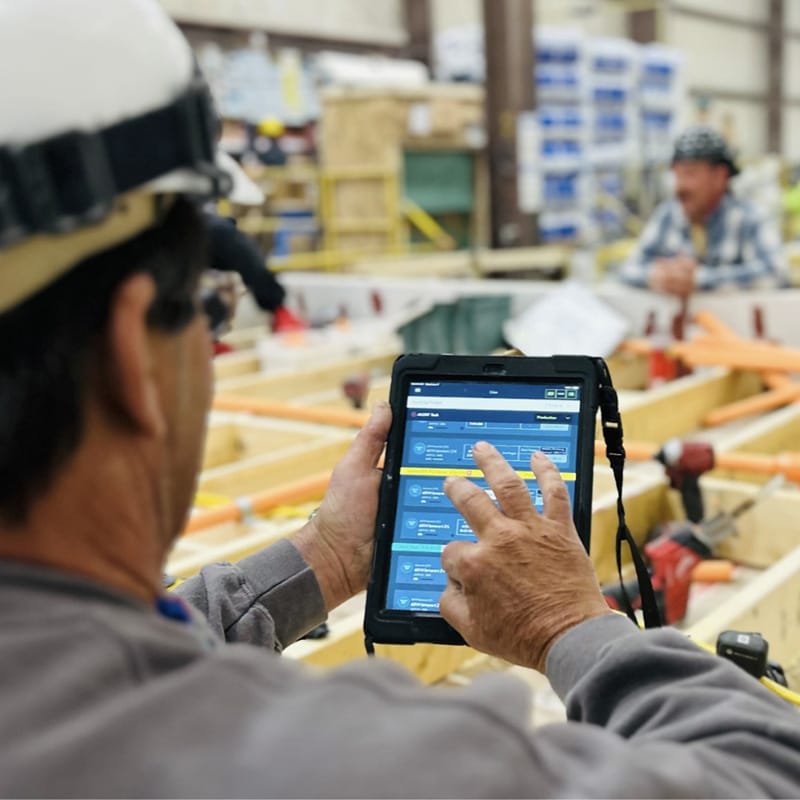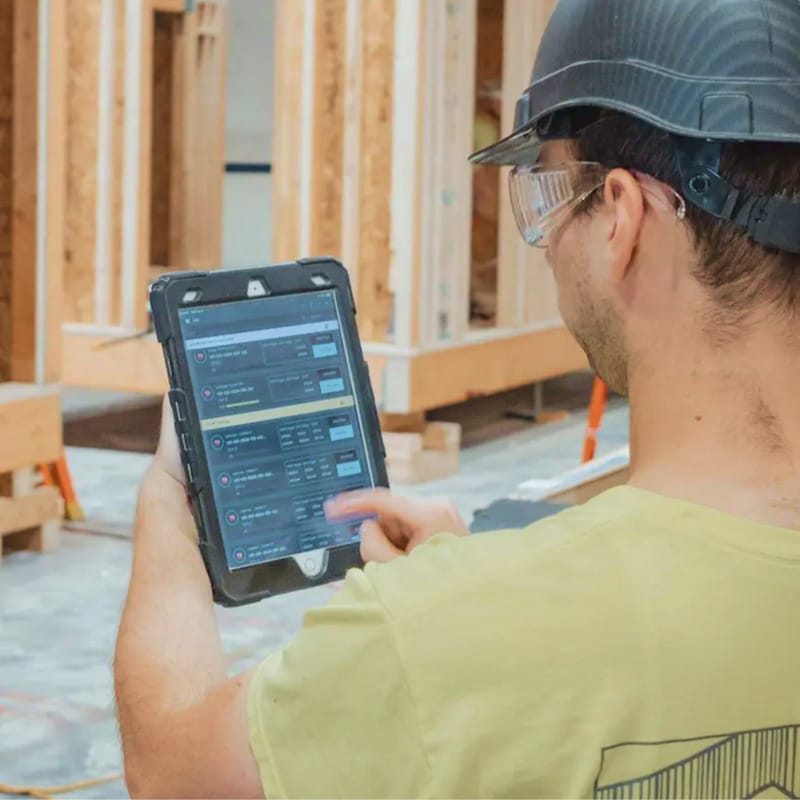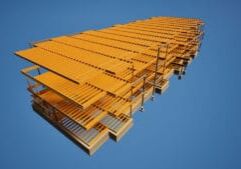The How-To Guide For Prefab Leaders: Actively Manage Your Prefab Schedule
In this How-To Guide for Prefab Leaders, we review how to generate a schedule forecast and factory production plan and how to manage the prefab project cycle to ensure that you are hitting the schedule targets. We review how to leverage technology like Offsight to manage prefab project delivery in real-time and to track factory production, live, to ensure you are meeting your deadlines. If production falls behind schedule, we will review how to take proactive steps to accelerate work and how to better understand the cost implications of these corrective actions.


Generate Your Prefab Project Schedule
We begin by generating the project schedule and factoring in labor capacity constraints. These constraints also apply to the unique prefabrication process for the products you are assembling. With Offsight’s pre-built prefab planning, forecasting and estimating templates, you can define your prefabrication process by your product type (e.g. EIFS panels, bath pods, volumetric modules, etc).
Once each process step is identified and hours are assigned to complete each process, you can then add your current labor resources and capacity constraints to generate an accurate factory production schedule with forecasted start and end dates. Projected delivery dates by collection of modules or bundles of panels (e.g. 1st floor, 2nd floor, etc) can then be provided to other project stakeholders to coordinate on-site installation.


Compare Real-Time Production with Your Planned Schedule
After building your forecasted schedule, you leverage technology like Offsight to track your progress from the shop floor, against your prefab schedule. As operators actively work on products on the shop floor and products move through assembly you can actively tracks status in real time through a mobile app to gain visibility. In order to compare your real time progress against your planned project schedule, you will need to overlay your live production Gantt over your plan.
With Offsight’s Schedule and Analytics Dashboard, you can automatically pull a real time production Gantt chart for all live products on the floor and track when they start prefabrication. It’s important to also track the production status of all live products in the overall assembly, including which processes were completed e.g. framing, and which are still pending and where these processes stand against their forecasted start and end dates.
Identify Schedule Delays and Correcting Course
By automatically linking forecasted product start and end dates, in a digital tool like Offsight, by process and workstation, you can see how each individual product or module is tracking against your plan. Thereby you could track a large modular project by individual module or collection of modules, e.g. floor 1, and immediately identify when production is falling behind your schedule.
In this manner all operators, team leads and supervisors can see when products and processes need to be completed to achieve your schedule targets. If updates to your forecasted schedule are needed to account for delays, a digital solution will allow you to easily move the target start and end dates in your plan. This will ensure you are always tracking your progress and managing prefabrication against your overall project schedule.
By leveraging technology like Offsight to communicate updates to all stakeholders in real time, you can enable collaboration and coordination throughout the project lifecycle.
More from Modular Advantage
Behind the Design of Bethany Senior Terraces, NYC’s First Modular Passive House Senior Housing Project
As more developers seek to meet new regulations for energy efficiency, the team at Murray Engineering has set a new record. With the Bethany Senior Terraces project, Murray Engineering has helped to develop NYC’s first modular structure that fully encompasses passive house principles — introducing a new era of energy efficiency in the energy-conscious city that never sleeps.
How LAMOD is Using Modular to Address Inefficiency, Sustainability, and the Future of Construction
As developers, designers, and contractors seek to understand the evolving needs of the modular industry, no one is as well-versed in the benefits of going modular as Mārcis Kreičmanis. As the co-founder and CBDO of LAMOD in Riga, Latvia, Mārcis has made it his ultimate goal to address the inefficiencies of traditional construction.
From Furniture Builder to ‘Activist Architect’: Stuart Emmons’ Unique Journey
Stuart Emmons was fascinated by buildings at a young age. He remembers building sand cities with his brother during trips to the Jersey shore. His father gave him his first drawing table at the age of ten. Today, he is an experienced architect who received his FAIA in June 2025. The road he took is unique, to say the least.
Forge Craft Architecture + Design: Codes, Contracts, and Intellectual Property
Founding Principal and Director of Modular Practice for Forge Craft Architecture + Design, Rommel Sulit, discusses the implications of codes, contracts, and intellectual property on
modular construction.
Eisa Lee, the “Bilingual” Architect
Now as the founder of XL
Architecture and Modular Design in Ontario, Canada, she applies not just her education as a traditional architect but an entire holistic view on modular design. It’s this expansive view that guides her work on being a true partner that bridges the gap between architects and modular factories as they collaborate on the design process.
Tamarack Grove Engineering: Designing for the Modular Sector
The role of a structural engineer is crucial to the success of a modular project, from initial analysis to construction administration. Tamarack Grove offers structural engineering services — project analysis, plan creation, design creation, and construction administration — for commercial, manufacturing, facilities, public services, and modular. Modular is only one market sector the company serves but it is an increasingly popular one.
Engineer Masters the Art of Listening to His Customers
Since founding Modular Structural Consultants, LLC. in 2014, Yurianto has established a steady following of modular and container-based construction clients, primarily manufacturers. His services often include providing engineering calculations, reviewing drawings, and engineering certification
Inside College Road: Engineering the Modules of One of the World’s Tallest Modular Buildings
College Road is a groundbreaking modular residential development in East Croydon, South London by offsite developer and contractor, Tide, its modular company Vision Volumetric (VV), and engineered by MJH Structural Engineers.
Design for Flow: The Overlooked Power of DfMA in Modular Construction
Unlocking higher throughput, lower costs, and fewer redesigns by aligning Lean production flow with design for manufacturing and assembly.
Choosing the Right Ramp
Modular construction offers a compelling alternative to traditional methods for designing and building ADA and IBC-compliant entrances. By addressing the challenges of traditional construction, such as time-consuming processes, unavailable specialized labor, and variable field conditions, modular solutions provide a more efficient, cost-effective, and reliable approach.










